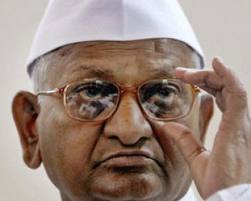New Delhi, Mar 14: The number of novel coronavirus cases in India rose to 83 on Saturday, which includes one death each from Delhi and Karnataka, the Union Health Ministry said.
While a 76-year-old man from Kalaburagi who had recently returned from Saudi Arabia died on Thursday, a 68-year-old woman in Delhi who had tested positive for coronavirus passed away at Ram Manohar Lohia (RML) Hospital on Friday night.
The woman, whose son with a travel history abroad had tested positive, died because of co-morbidity (diabetes and hypertension), the Health Ministry said, adding that she had tested positive for COVID-19.
Delhi has reported seven positive cases and Uttar Pradesh 11 so far. Karnataka has six coronavirus patients while Maharashtra has 14 and Ladakh three.
Besides, Rajasthan, Tamil Nadu, Jammu and Kashmir, Andhra Pradesh and Punjab have reported one case each. Telangana has reported two.
Kerala has recorded 19 cases, including three patients who were discharged last month after they recovered from the contagious infection with flu-like symptoms.
The total number of 84 confirmed cases includes 17 foreigners -- 16 Italian tourists and a Canadian, the ministry officials said.
Amid rising coronavirus cases in India, the government has asked people not to panic, saying no community transmission of the virus has been observed and there has only been a few cases of local transmission so far and that is "not a health emergency" in India at present.
With the World Health Organisation (WHO) declaring COVID-19 a pandemic, a Health Ministry official said over 4,000 people who had come in contact with the 83 positive cases have been identified through contract tracing and were being tracked while 42,000 people across the country are under community surveillance.
He said all essential facilities like community surveillance, quarantine, isolation wards, adequate personal protective equipment (PPEs), trained manpower, rapid response teams are being strengthened further in all the states and union territories.
The Centre as part of its measures to contain the spread of the disease on Friday announced that people will be allowed to travel through 19 of 37 land border checkposts from Saturday midnight and services of the Indo-Bangladesh cross border passenger trains and buses will continue to remain suspended till April 15.
Only four Indo-Nepal border checkposts will remain operational, and for citizens of Bhutan and Nepal visa-free entry to the country will continue, Home Ministry Additional Secretary Anil Malik had said.
He said the decision on closing the Kartarpur Corridor is under consideration
The government on Wednesday suspended all visas, barring a few categories like diplomatic and employment, in an attempt to prevent the spread of coronavirus.
It has asked Indian nationals to avoid all non-essential travel abroad.
All incoming international passengers returning to India should self-monitor their health and follow the required do's and dont's as detailed by the government.






Comments
Add new comment